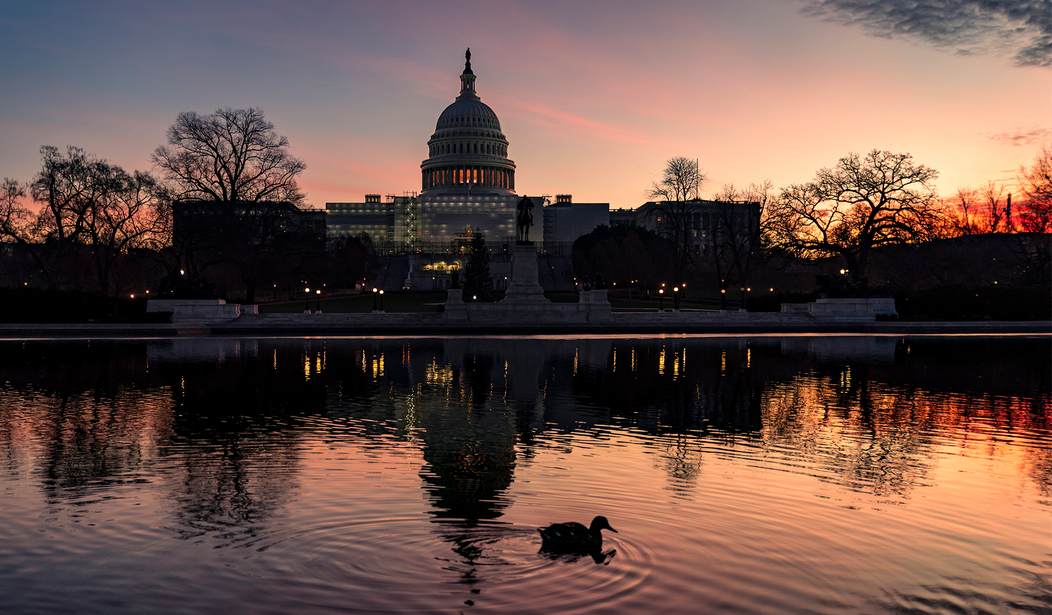How long would it take you to read 4,155 pages of nearly incomprehensible government-speak? If all the members of Congress were graduates of the Evelyn Wood speed reading course, it could be done in several hours.
Otherwise, you might want to consider that War and Peace was only 1,250 pages — about the same number that is in the average bible. That’s less than a third of the number of pages in the $1.7 trillion spending package that’s being presented to both houses of Congress today, where it may be voted on as early as this afternoon.
There’s a reason it’s being deliberated four days from Christmas. No congressperson wants to be stuck at Reagan airport on Christmas eve with a possible snowstorm on the way. Congress wants to get the hell out of Dodge and rather than do their jobs and care for the public purse, they figure their leaders have made sure there are no landmines in the bill and after casting their votes, most of them will head for warmer climes.
The leadership made sure that no one would read the darn thing by releasing the details of the bill at 2 a.m. this morning.
What’s in it, you might ask? Don’t bother, because no one can tell you.
The spending package includes about $45 billion in emergency assistance to Ukraine. It would be the biggest American infusion of assistance yet to Ukraine, above even President Joe Biden’s $37 billion emergency request, and ensure that funding flows to the war effort for months to come.
The U.S. has provided about $68 billion to Ukraine in previous rounds of military, economic and humanitarian assistance.
Joe Biden and the Democrats know that the next tranche of aid for Ukraine will undergo some congressional scrutiny — unlike the $68 billion shoveled to Kyiv previously. They wanted to stuff as much assistance into this bill as possible before the Republican majority in the House could take a look at the books.
Related: The National Debt Passes $31 Trillion Even as COVID Spending Slows
The legislation also includes historic revisions to federal election law that aim to prevent any future presidents or presidential candidates from trying to overturn an election. The bipartisan overhaul of the Electoral Count Act is in direct response to former President Donald Trump’s efforts to convince Republican lawmakers and then-Vice President Mike Pence to object to the certification of Biden’s victory on Jan. 6, 2021.
“We are now one step closer to protecting our democracy and preventing another January 6th,” said Sen. Amy Klobuchar, D-Minn.
There was no real effort to overturn the 2020 election. The electoral votes had been counted and certified. What happened in Washington on January 6 was theater and had no relationship to the law or reality. The “reform” is probably necessary to clear up a minor ambiguity but as far as “protecting our democracy”? Not hardly.
McConnell said the GOP’s negotiations were successful in the end. He framed the longer-term spending bill as a victory for the GOP, even as many Republicans will undoubtedly vote against it. He said Republicans succeeded in increasing defense spending far beyond Biden’s request while scaling back some of the increase Biden wanted for domestic spending.
“We’ve transferred huge sums of money away from Democrats’ spending wish list toward our national defense and armed forces, but without allowing the overall cost of the package to go higher,” McConnell said.
GOP House members are very unhappy. They thought McConnell should have pushed for a longer stop-gap spending measure, thus pushing the issue into next year when the GOP House could have really gummed up the works.
There will be plenty of time for fun and games with the debt limit and other issues next term. Those Republicans who don’t give a fig for fiscal responsibility but love the prospect of playing “Shutdown Theater” will get their chance when the debt limit comes up for a vote sometime after April 1.










Join the conversation as a VIP Member